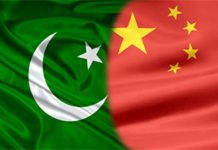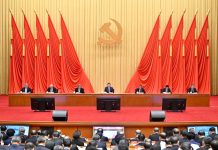
Team China’s performance at the Paris 2024 Olympic Summer Games was record-breaking. Athletes from the Chinese mainland took home 91 medals, their greatest achievement in an overseas Olympic Games. Global audiences consider this feat a reflection of China’s overall progress, showcasing the nation’s ability to compete and excel in a highly competitive global arena.
The country is no longer just dominant in a few select traditional disciplines such as diving, table tennis and weightlifting. It is becoming a well-rounded athletic powerhouse, staging successful performances across a wide range of sports.
Aside from the pride and glory of sporting success, this accomplishment may carry profound economic implications that could shape the future of China’s economy and its global standing.
The country’s success across a broader array of sports is likely to accelerate the growth of its domestic sports industry. This sector, which includes everything from athletic apparel and equipment to infrastructure and related media, is now poised for a significant boost. As more young Chinese are inspired by Olympic heroes, demand for sports-related products will skyrocket, driving the expansion of the domestic manufacturing and retail industries.
Moreover, as the government capitalizes on this momentum, an increase in investment in sports facilities and training centers is to be expected. This not only creates jobs but also stimulates local economies, particularly in less-developed regions where sports development can act as a catalyst for broader economic growth.
China’s Olympic success story sends a powerful message to the world: The nation is a force to be reckoned with, not just in traditional sectors like manufacturing and technology, but also in the competitive world of sports.
This fine-tuned perception of the country can, in turn, translate into increased foreign investment. Multinational corporations seeking to tap into the Chinese market may be more inclined to invest in partnerships, sponsorships and joint ventures, particularly in the booming sports and entertainment sectors.
Plus, the Olympics have always been a platform for showcasing national cultures. As global interest in China’s sports medalists grows, so will curiosity about the country’s culture, history and tourist destinations, promoting tourism and cultural exchange.
Increased tourism can have a ripple effect across the economy, empowering sectors like hospitality, transportation and retail. Moreover, successful cultural exchange initiatives can lead to stronger bilateral relationships, opening doors for economic collaborations in areas such as education, technology and the arts.
One of the less obvious, but potentially transformative, effects of China’s recent Olympic success is its impact on public health and fitness. As more Chinese are inspired to engage in sports and physical activities, the nation could see a significant improvement in public health outcomes. This is important for a country with a swiftly aging population, where healthcare costs are a growing concern.
Healthier citizens mean a more productive workforce, reduced healthcare costs and, ultimately, a more sustainable economy. The government’s likely emphasis on sports as a tool for public health can also lead to long-term economic benefits, including increased life expectancy and better quality of life.
But Olympic achievements are not just about physical prowess; they’re also a testament to China’s advancements in sports science and technology. For instance, cutting-edge technology is increasingly driving training regimens, nutrition programs and recovery methods employed by the athletes. These innovations can spill over into other sectors, pushing forward advancements in fields such as wearable technology, biomedical engineering and artificial intelligence.
As China continues to innovate in the athletic area, these technologies can be commercialized and exported, opening up new markets and revenue streams. The country’s leadership in sports technology can also attract global talent and investment, further integrating China into the global innovation ecosystem.
In summary, China’s record-breaking medal haul at the Paris Olympics is bound to have implications that stretch well beyond the realm of sports.
In the long run, this Olympic triumph could prove to be a turning point, not just for China’s sports ambitions, but for its overall economic strategy. The convergence of national pride, economic growth and global influence is a powerful force that will shape China’s future in the decades to come. –The Daily Mail-Beijing Review news exchange item





